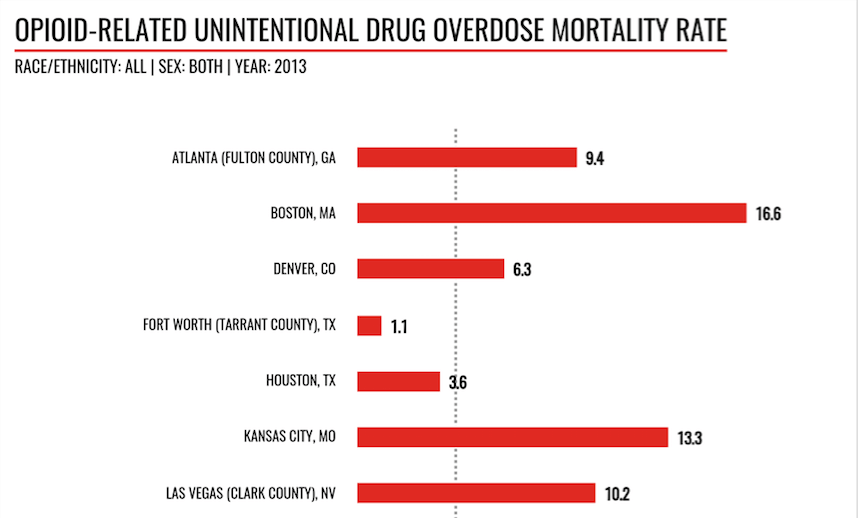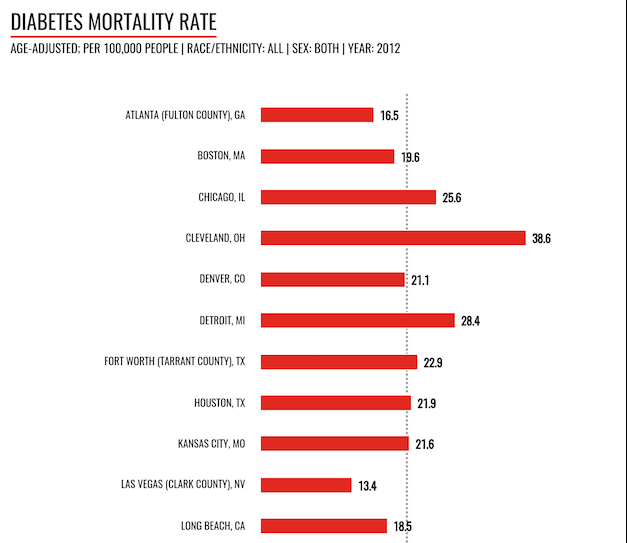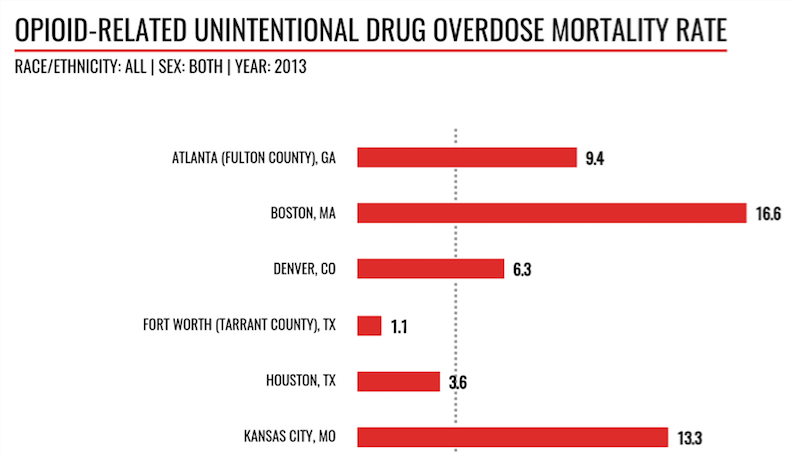Big Cities Health Coalition Compares Data in 28 Cities, Including Houston

Want to know how Houston shapes up against other cities in terms of health?
The Big Cities Health Coalition unveiled its upgraded Big Cities Health Inventory (BCHI) Data Platform this week, which lets users compare health notes across 28 large, urban cities, including Houston.
For example, the platform shows that Houston had 3.6 opioid-related unintentional drug overdose deaths per 100,000 residents in 2013, compared to the national rate of 4.2 deaths per 100,000 residents.
It also shows Houston had 21.9 diabetes deaths per 100,000 residents in 2012, just under San Antonio’s 22.6 and Fort Worth’s (Tarrant County) 22.9 deaths. The national rate is 21.2.
Looking at infectious diseases, Houston had one of the higher rates of tuberculosis incidences in 2013, with 8.9 people being diagnosed out of 100,000 people. Only California cities including Sacramento, San Jose and San Francisco were higher. The U.S. average rate for TB incidences is 3.2.
The platform, funded by the U.S. Centers for Disease Control and Prevention, is the first of its kind to provide this type of comparative data at the city level, said coalition director Chrissie Juliano during a press conference. Previously, data was available only at the state or county levels.
“A unique resource for the public health community, it’s now even easier for users to find out how city populations are faring on some of the biggest public health challenges of our time, including opioid addiction, lead poisoning, and gun violence,” she said. “These cities are true innovators, well versed in improving America’s health and addressing health disparities by advancing policies that prevent disease and keep Americans healthy. This data tool provides insight into the state of urban public health in a new way.”
The Houston Health Department is a member of the coalition, and it provides data to the platform tool, which features over 17,000 data points – including more than 50 health and socio-demographic indicators.
“This data platform will prove valuable in comparing urban areas, many of which face similar challenges in our country,” Deborah Banerjee, bureau chief in the Office of Planning, Evaluation and Research for Effectiveness for the Houston Health Department. “Cities could implement a knowledge exchange system and use this data to inform and learn, as decisions are made about needed health programs.”
In addition, Banerjee said “academic researchers could potentially use this data in answering research questions on urban health issues. Policy makers at the state and federal levels would have ready access to this information, allowing for more data driven decision making when it comes to resource allocation.”
The Big Cities Health Coalition (BCHC) is a forum for the leaders of America’s largest metropolitan health departments to exchange strategies and jointly address issues to promote and protect the health and safety of their residents. It is an independent project of the National Association of City and County Health Officials (NACCHO).
The platform includes data from Atlanta (Fulton County), Baltimore, Boston, Chicago, Cleveland, Dallas, Denver, Detroit, Fort Worth (Tarrant County), Houston, Kansas City (MO), Las Vegas (Clark County), Long Beach, Los Angeles, Miami (Miami-Dade County), Minneapolis, New York City, Oakland, Philadelphia, Phoenix, Portland (Multnomah County), Sacramento, San Antonio, San Diego County, San Francisco, San Jose, Calif., Seattle and Washington, D.C.





